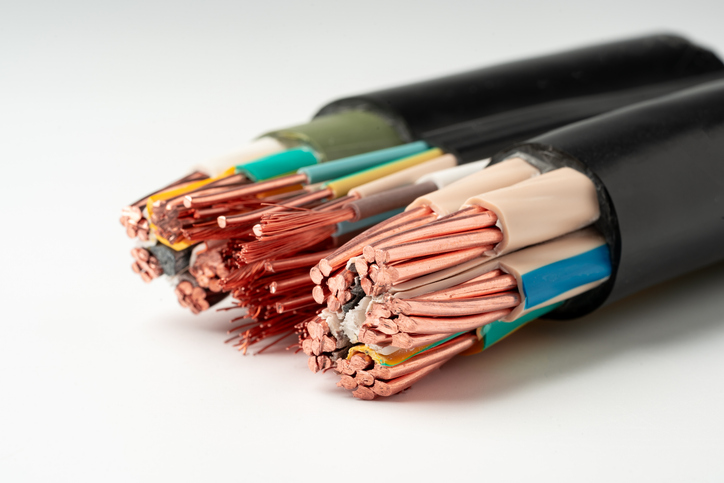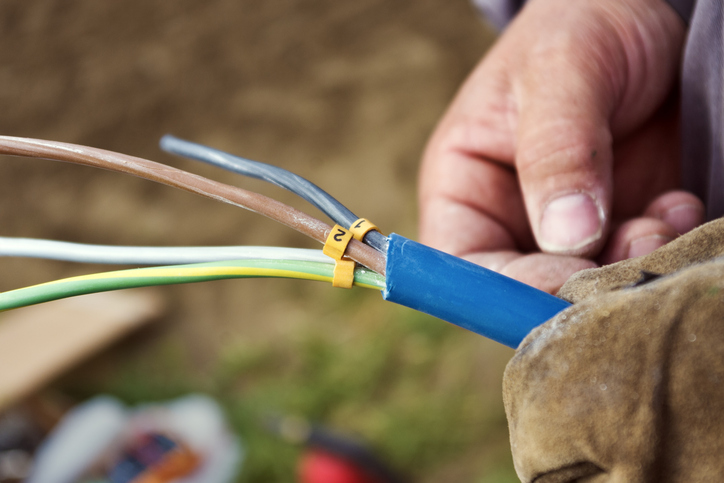Trailer Cable & Wiring Guide
Just as the term implies, trailer cable is mainly used for trailers and tow-behinds. With this special cable, safety is the number one priority. Trailer cable wires support and supply power for trailer lights and brakes—a crucial job when moving heavy equipment.
As we all know, the road can put forth a lot of wear and tear on any equipment. So when you're towing a trailer or another heavy item, you need to trust that your cable wire stands up to icy conditions, dirt, dust, grease, and changing temperatures.
At IEWC, we sell high-quality wire and cable, including trailer cable. Get exactly what you need for any heavy-duty application.
Exploring the Types of Trailer Cables
Trailer cable is similar to most electric cables in that it consists of a conductor and an insulator. In the case of most trailer cables, the conductor is stranded copper wire, and the insulating coating is PVC. In most cases, trailer cable is also color-coded to make maintenance easier.
Trailer cable is typically found within the brake and safety systems of trailers, tow-behinds, and other pieces of towable equipment (like boat hitches, for example). The trailer wiring is used to power taillights, brake lights, and turn signals—the components that connect trailers and towable items to vehicles and keep them safe on the road.
Trailer cable and wiring must be durable and strong because it's exposed to many different elements. Road hazards include dust, ice, salt, gravel, and other abrasives. Trailer cables must also stand up to water, especially in marine and boating applications. Outdoor temperatures can fluctuate from frigid to hot, and trailer cable needs to continue to work through all conditions.
Trailer Wire Colors
When exploring the types of trailer cables, the first thing to understand is that there is a standardized color-coding system. This safety measure helps to ensure that anyone working with trailer cable—novice to professional—understands exactly which wire connects to which component.
-
Green wiring connects to the trailer’s right turn signal.
-
Yellow wiring connects to the trailer’s left turn signal.
-
White wiring connects to the ground point.
-
Brown wiring connects to the taillights.
-
Blue wiring connects to the brake.
-
Red wiring connects to the battery.
-
Purple wiring connects to the backup lights.

Trailer cabling is also categorized by number. The first four wires: green, yellow, white, and brown, comprise the most common wiring scheme known as 4-way wiring. The inclusion of blue makes up five-way wiring when a trailer features built-in brakes. Trailer brake safety cable must always be of the highest quality.
6-way wiring includes a battery wire with the first five wires and is often used in applications like horse trailers, where a fan or interior lights are used. The final 7-way wiring is used for backup lights and other items like hydraulic couplers.
Most light-duty trailers use four-way lighting, such as those used for towing boats or campers. Larger or more robust trailers like horse and livestock, large boats, and tiny house trailers may require 5, 6, or 7-way wiring. It's essential to have the right trailer light cable and trailer safety cable.
In addition to the wiring, there are coinciding trailer connectors. The flat 4-pin connectors are used in small trailers, pop-up campers, and utility tows (applications without brakes). A flat 5-pin connector includes lighting functions for the brakes. 6-pin includes additional connections for functions. Finally, the 7-pin connectors are often found on SUVs that are factory-rigged to include a trailer hitch.
Common Trailer Cable Problems & Solutions
The following are some common problems you may face when wiring a trailer:
Lights Flickering or Aren’t Working
- Check Connections: Ensure all connections are secure and corrosion-free. Apply dielectric grease to prevent future corrosion.
- Inspect Wiring: Look for damaged wires and replace as needed.
- Replace Fuses: Check and replace any blown fuses with the correct rating. Use a multimeter to ensure proper voltage delivery.
Weak or Faulty Ground Connection
- Secure Ground Wires: Attach ground wires to clean, bare metal surfaces.
- Ground Each Light: Ensure each tail light assembly is properly grounded, especially on non-conductive mounts.
Blown Fuses
- Check for Short Circuits: Inspect for exposed wires touching the trailer frame and repair or replace them.
- Proper Load Distribution: Ensure electrical loads don’t exceed fuse ratings. Consider higher capacity fuses if necessary.
- Use Circuit Breakers: Install inline circuit breakers to protect against overloads and short circuits.
Inadequate Wire Gauge
- Select the Correct Gauge: Use appropriate wire gauge based on electrical load requirements, typically 12-16 AWG for trailers.
- Consult with Experts: Get guidance from experts like IEWC if unsure about the correct wire gauge.
Environmental Damage
- Use Protective Tubing and Wraps: Protect wiring from damage and exposure, especially in marine environments.
- Regular Maintenance: Inspect wiring regularly for wear and tear, replacing damaged wiring immediately.
Importance of High-Quality Trailer Cables
It goes without saying that wire connecting two large pieces of equipment—a vehicle and trailer—needs to be as safe as possible. Therefore, trailer safety cables that connect to critical components, like the brakes, should always be of the highest quality. Trailer wire and cable are no place to cut corners!
Some of the more common problems and mistakes often come from using low-quality materials or choosing the wrong gauge wiring to support the application. Most trailer cables and wires are 12-16 AWG, but it's essential to do your homework (or talk to an expert) before deciding.
Another common issue is failing to protect trailer cables and wires from environmental hazards. Before choosing trailer wires and cables, you should consider the conditions the trailer will face in regular use. For example, saltwater can wreak havoc on wires, causing corrosion and degradation. Ice, sand, dust, and other abrasives are also harsh.
If you’re preparing your trailer cable for tough environments, you should explore protection like tubing and cable wraps to keep your trailer wire reliably performing.
How to Pick the Right Trailer Cable
Because trailer cable requirements can vary between applications, situations, and environments, the short answer is, when in doubt, ask. We can supply you with the right cable that you need for your job. We’ll look at the safety ratings, environmental requirements, and other factors to help you find exactly what you need.
It’s also important to regularly inspect and maintain your trailer cable and wiring before each hitch. Make sure that the trailer light cable and brake safety cable are attached and in proper working order. Watch for signs of fraying, degradation, and damage. If a cable shows exposed wire, it’s time to update your trailer cable right away.
If you’re looking for reliable trailer cable and wiring, look no further than IEWC. We’re an industry leader in cable and wiring, including trailer cable. Reach out today.
Frequently Asked Questions
Trailer cable assemblies typically come in 4-way (flat) for basic tail/stop/ground; 5-way adds a brake signal; 6-way may include auxiliary power; 7-way (round) provides power, brakes, reverse light, and auxiliary circuit, used for heavy trailers and RVs.
Choose gauge based on current load (usually 14–12 AWG for lighting, 10 AWG for brakes or electric winches). Match the number of conductors to the number of functions (stop, turn, tail, ground, brake, auxiliary).
Yes. Many trailer cables use rugged PVC or thermoplastic insulation rated for abrasion, UV, oils, and moisture. Look for DOT-approved (SAE J1128) or marine-grade materials for harsh environments.
Generally: White = ground, Brown = tail/marker lights, Yellow = left turn/brake, Green = right turn/brake, Blue = auxiliary or brake, Red = reverse or auxiliary. Colors vary slightly between flat and round styles but follow SAE J560/J1128 conventions.
Related Resources

What is a Cable?
Cable, or cabling, consists of the twisting together of two or more insulated conductors.Learn More
Popular Shielding Types
In situations with long signal runs or complex circuits, shielding becomes a crucial part of reducing interference and maintaining signal integrity. Learn More
Color Codes
Many different wire identifications rely on color codes and not all color codes are the same.Learn More


